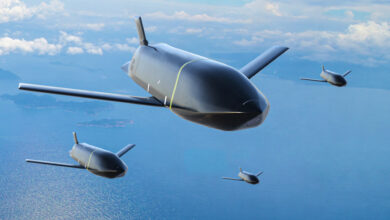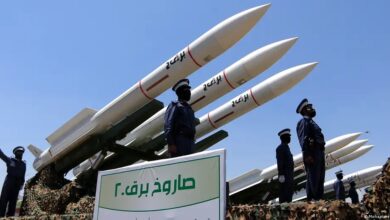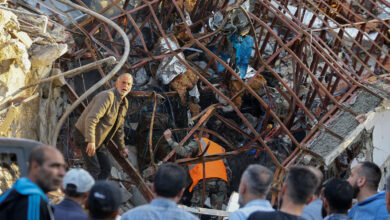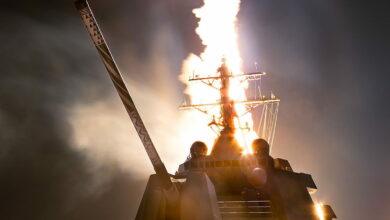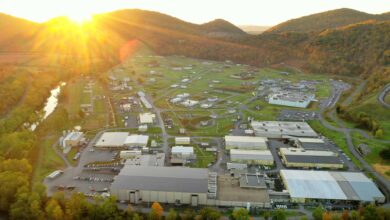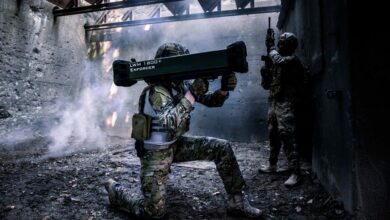
Sirous Amerian
What many had hoped for, and others had tried to stop, happened last month when President Donald Trump decided to pull the United States out of the Joint Comprehensive Plan of Action, the deal that has halted many of Iran’s nuclear activities since 2015.
Iran is a signatory to the Nuclear Non-Proliferation Treaty and as mentioned in Article VI, it has the legal right to “develop research, production and use of nuclear energy for peaceful purposes.” Asking Iran to cease all nuclear-related activities forever is an unreasonable request, and seeks to deprive a country of its rights.
With the U.S. exit and efforts by the Europeans, Russia and China to salvage the deal some questions are raised about the future and Iran’s intentions that I will attempt to answer here.

Does Iran really want a nuclear weapon? The answer to that question requires some explanation.
Nuclear weapons are not built to be used and are primarily deterrent assets. That is, they stop the enemy from attacking you because they would fear you would strike back with nuclear weapons and evaporate them, therefore making an attack more expensive for them. If nuclear bombs could be acquired over-the-counter and in an instant and trouble-free manner, all nations that face outside threats would want them, but that is not the case with the nuclear bomb.
Building one requires access to highly specialized technology and science, large enrichment plants, rare materials such as highly enriched uranium or plutonium, and years of testing and finally a delivery vehicle. Most importantly, it requires some privacy or at least the lack of attention on the nation developing such a weapon.
Currently, the international spotlight is on Iran’s nuclear facilities, and to develop the other requirements to get to a bomb or a prototype would probably take a year or so. This period would be a very dangerous one for Iran as – similar to Saddam Hussein’s reactor and plans – it would provoke its adversaries, the likes of Saudi Arabia, Israel and the U.S., to attack Iran to stop it from getting to the point of becoming a nuclear armed state.
Essentially, in a scenario similar to the security dilemma in international relations theory, by reaching out to get the A-Bomb and making itself safer, Iran would make its neighbours feel less safe and invite them to attack.
The Iranian government is well aware of the deep hostility that the Trump administration and Iran’s neighbours have towards the country and should not risk aggravating and pushing them towards a strike. Racing towards the bomb will invite those countries to act. If this wasn’t the case, and there wasn’t so much risk associated with it, Iran would love to have nuclear bombs to make itself safer, but policy-makers in Tehran know it’s not worth the risk.
Now that we are in the post-U.S. exit era of the JCPOA, if the Europeans don’t manage to give Iran enough of a bounty to stay in the deal, Tehran may pull out, but it is still unlikely to race for the bomb. Iran tried to build trust with the U.S. and showed its goodwill by signing up to the nuclear deal but it wasn’t incentivised to do more, and so would surely become a nuclear threshold state again in the absence of a deal with the E.U. This threshold status would give it something to negotiate on later, if a more rational and open-minded administration enters the White House in the future.
With the bomb off the table, what offensive capability is Iran exploring or interested to explore?
As I wrote in another op-ed for the The Defense Post, Iran’s military is very weak, uses outdated weaponry and doesn’t pay or feed its personnel very well. To build the military up to world standards and make it comparable in power to the Arab armies of Saudi Arabia and the UAE or the Israelis, would require billions of dollars and market access to buy to-notch technology and equipment, both of which Iran’s doesn’t have.

The only way to deter attacks or protect itself from outside is by relying on, and improving the one capability Iran is already good at – ballistic missiles. Iranian ballistic missiles are already a capable and valid threat and difficult to defend against, and their construction will end up being much cheaper than the complete overhaul of the armed forces, and they are already a capable threat and difficult to defend against. also, they aren’t as provocative as a nuclear bomb.
Just look at the recent missile launches from inside Yemen targeting Saudi facilities. There is speculation that Saudi Arabia’s Patriot missile defense system has not been able to down the entire incoming salvo and has even failed on occasion. The sophisticated billion-dollar system could not take down the few cheap missiles launched at it.
Imagine if those missiles were Iranian – more numerous and more advanced, with a variety of payloads, better targeting range and accuracy. Iran already has a deterrent in place against its adversaries, and that’s why I said before that forcing Iran to give up its ballistic missiles would be like declawing a cat and would leave the country defenseless and prone to outside attacks.
 Sirous Amerian is a PhD Candidate and Graduate Assistant at the Centre for Defence and Security Studies at Massey University in New Zealand. While in Iran, he worked as a Policy Analyst for the Institute of Iran Eurasian Studies (IRAS). He tweets at @AmerianS.
Sirous Amerian is a PhD Candidate and Graduate Assistant at the Centre for Defence and Security Studies at Massey University in New Zealand. While in Iran, he worked as a Policy Analyst for the Institute of Iran Eurasian Studies (IRAS). He tweets at @AmerianS.
All views and opinions expressed in this article are those of the author, and do not necessarily reflect the opinions or positions of The Defense Post.
The Defense Post aims to publish a wide range of high-quality opinion and analysis from a diverse array of people – do you want to send us yours? Click here to submit an Op-Ed.


